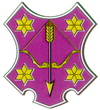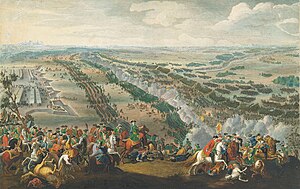 Oscar.com: The Official Academy Awards Site
Oscar.com: The Official Academy Awards Site
 3 Peaks in 36 Hours
3 Peaks in 36 Hours
 TO YOU, LADIES
TO YOU, LADIES
 TO YOUR HEALTH!
TO YOUR HEALTH!
 Russian Bard Songs Festival.May 9-11,2008 Lake Vail,Riverside County,S.California
Russian Bard Songs Festival.May 9-11,2008 Lake Vail,Riverside County,S.California
 Russian Bard Songs Festival.May 16-18,2003 Lake Vail,Riverside County,S.California
Russian Bard Songs Festival.May 16-18,2003 Lake Vail,Riverside County,S.California
 Crimea Slide Show
Crimea Slide Show
 Find an expedition to join in
Find an expedition to join in
 Author's Picture
Author's Picture
 Author's Resume
Author's Resume
 Welcome To Los Angeles!
Welcome To Los Angeles!
 Guide To the Over 60 Cities In the United States
Guide To the Over 60 Cities In the United States
 Get News. From The Library of Congress to Oscar, Vogue, FIFA & More...
Get News. From The Library of Congress to Oscar, Vogue, FIFA & More...
 Cool Russian and Ukrainian Sites
Cool Russian and Ukrainian Sites
 Ukraine and My Ukrainian Friends
Ukraine and My Ukrainian Friends
 World Virtual Tourist
World Virtual Tourist
 Outdoor & Wilderness Trips...GO!...
Outdoor & Wilderness Trips...GO!...
 Me in Caucasus
Me in Caucasus
 My Friends From Kiev In the Expedition To Mt.Elbrus
My Friends From Kiev In the Expedition To Mt.Elbrus
 A Beauty Of Mt.Elbrus
A Beauty Of Mt.Elbrus
 An Expedition To Mt. Matterhorn(The Alps)
An Expedition To Mt. Matterhorn(The Alps)
 Unknown Grandeur Of Russian Mountains
27.09.2009 Happy International Tourism Day!
11.09.2009 9/11 We remember
09.09.2009
Unknown Grandeur Of Russian Mountains
27.09.2009 Happy International Tourism Day!
11.09.2009 9/11 We remember
09.09.2009  27.06.2009 A date in the history: June 28, 300 years anniversary of the Poltava Battle
27.06.2009 A date in the history: June 28, 300 years anniversary of the Poltava Battle

 The Battle of Poltava (or Pultowa) in June 28, 1709 (July 8, N.S.) was the decisive victory of Peter I
of Russia over Charles XII of Sweden in the most famous of the battles of the Great Northern War.
It is said to have started the end of Sweden's role as a Great Power and the Russians took their place
as the leading nation of northern Europe. This also meant the rise of Imperial Russia.
The battle began before dawn at 3:45 a.m. in June 28, with the Swedes advancing boldly against
the Russian fortified lines. At first, the battle started off in a traditional fashion, with the better trained
Swedes pressing in on the Russians' redoubts, overrunning a few Russian defensive redoubts.
The Swedish seemed to possess an advantage, but this was quickly nullified. By dawn, the weather
was already very hot and humid with the rising sun obscured by smoke from cannon and musket fire.
The Swedish infantry, commanded by General Lewenhaupt, attempted to attack the Russians. But
the Swedish advance soon faltered, partly because the infantry had been ordered to withdraw and
reorganise. To make matters worse, one Swedish detachment, commanded by General Roos, hadn't
been told about the overall plan and became isolated in the Russian defensive redoubts when a column
of about 4,000 Russian reinforcements reoccupied the fortified positions, trapping Roos and his
2,600-man force. With over 1,000 casualties and ammunition running low, Roos was forced to surrender
his command. More>>
The Battle of Poltava (or Pultowa) in June 28, 1709 (July 8, N.S.) was the decisive victory of Peter I
of Russia over Charles XII of Sweden in the most famous of the battles of the Great Northern War.
It is said to have started the end of Sweden's role as a Great Power and the Russians took their place
as the leading nation of northern Europe. This also meant the rise of Imperial Russia.
The battle began before dawn at 3:45 a.m. in June 28, with the Swedes advancing boldly against
the Russian fortified lines. At first, the battle started off in a traditional fashion, with the better trained
Swedes pressing in on the Russians' redoubts, overrunning a few Russian defensive redoubts.
The Swedish seemed to possess an advantage, but this was quickly nullified. By dawn, the weather
was already very hot and humid with the rising sun obscured by smoke from cannon and musket fire.
The Swedish infantry, commanded by General Lewenhaupt, attempted to attack the Russians. But
the Swedish advance soon faltered, partly because the infantry had been ordered to withdraw and
reorganise. To make matters worse, one Swedish detachment, commanded by General Roos, hadn't
been told about the overall plan and became isolated in the Russian defensive redoubts when a column
of about 4,000 Russian reinforcements reoccupied the fortified positions, trapping Roos and his
2,600-man force. With over 1,000 casualties and ammunition running low, Roos was forced to surrender
his command. More>>
 |
|







Oscar.com: The Official Academy Awards Site
3 Peaks in 36 Hours
TO YOU, LADIES
TO YOUR HEALTH!
Russian Bard Songs Festival.May 9-11,2008 Lake Vail,Riverside County,S.California
Russian Bard Songs Festival.May 16-18,2003 Lake Vail,Riverside County,S.California
Crimea Slide Show
Find an expedition to join in
Author's Picture
Author's Resume
Welcome To Los Angeles!
Guide To the Over 60 Cities In the United States
Get News. From The Library of Congress to Oscar, Vogue, FIFA & More...
Cool Russian and Ukrainian Sites
Ukraine and My Ukrainian Friends
World Virtual Tourist
Outdoor & Wilderness Trips...GO!...
Me in Caucasus
My Friends From Kiev In the Expedition To Mt.Elbrus
A Beauty Of Mt.Elbrus
An Expedition To Mt. Matterhorn(The Alps)
Unknown Grandeur Of Russian Mountains 27.09.2009 Happy International Tourism Day! 11.09.2009 9/11 We remember 09.09.2009
27.06.2009 A date in the history: June 28, 300 years anniversary of the Poltava Battle
The Battle of Poltava (or Pultowa) in June 28, 1709 (July 8, N.S.) was the decisive victory of Peter I of Russia over Charles XII of Sweden in the most famous of the battles of the Great Northern War. It is said to have started the end of Sweden's role as a Great Power and the Russians took their place as the leading nation of northern Europe. This also meant the rise of Imperial Russia. The battle began before dawn at 3:45 a.m. in June 28, with the Swedes advancing boldly against the Russian fortified lines. At first, the battle started off in a traditional fashion, with the better trained Swedes pressing in on the Russians' redoubts, overrunning a few Russian defensive redoubts. The Swedish seemed to possess an advantage, but this was quickly nullified. By dawn, the weather was already very hot and humid with the rising sun obscured by smoke from cannon and musket fire. The Swedish infantry, commanded by General Lewenhaupt, attempted to attack the Russians. But the Swedish advance soon faltered, partly because the infantry had been ordered to withdraw and reorganise. To make matters worse, one Swedish detachment, commanded by General Roos, hadn't been told about the overall plan and became isolated in the Russian defensive redoubts when a column of about 4,000 Russian reinforcements reoccupied the fortified positions, trapping Roos and his 2,600-man force. With over 1,000 casualties and ammunition running low, Roos was forced to surrender his command. More>>
